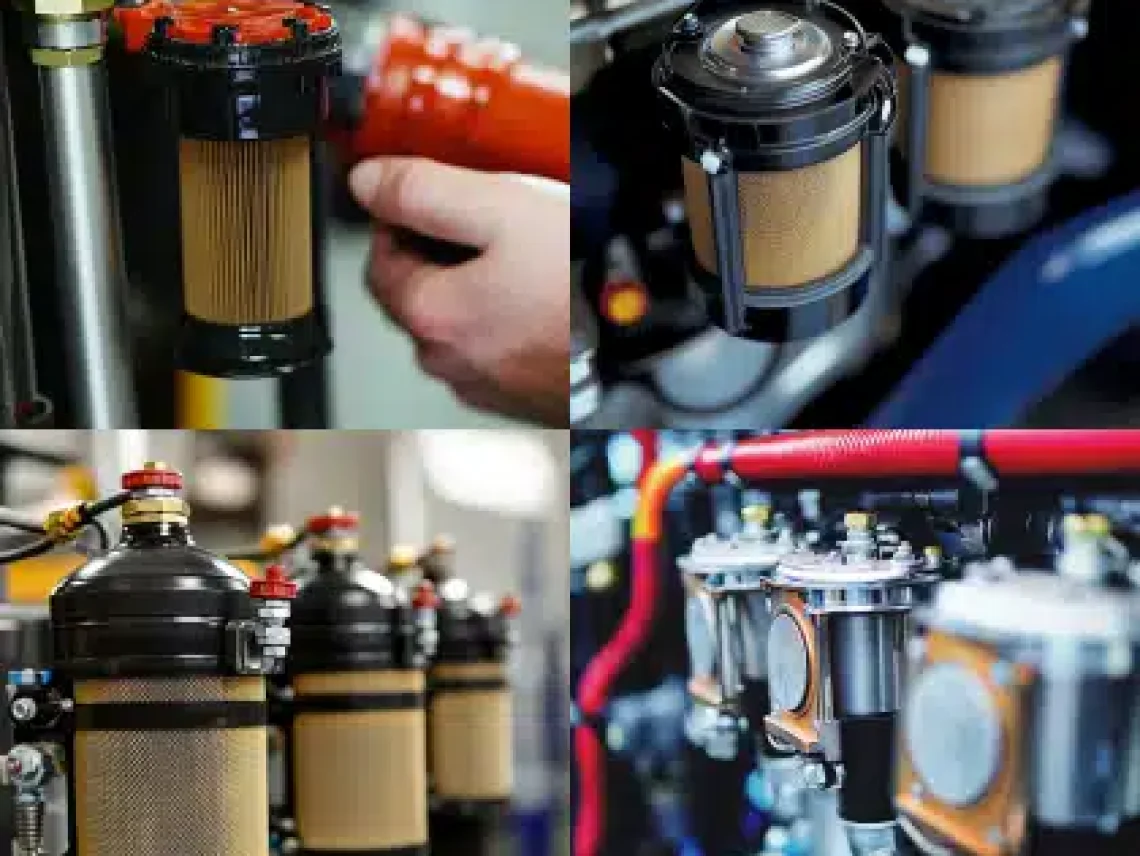
When it comes to diesel engine care, few components are as vital as the fuel filter and the diesel fuel filter with water separator. While both protect your engine, they serve different functions. A fuel filter captures dirt, rust, and debris, while a petrol filter water separator keeps harmful water out of your fuel system. In other words, one handles solid contaminants and the other blocks water. Understanding this difference can mean the difference between reliable performance and expensive repairs.
Learn more in our detailed guide: Water and Your Fuel Filter: How It Affects Performance
A standard fuel filter ensures diesel fuel is clean before reaching your injectors and pumps. It traps:
Dirt
Rust
Solid debris
Regular replacement every 15,000–30,000 miles (at a cost of $15–$50) keeps your engine running smoothly. Proper maintenance boosts fuel efficiency, protects injectors, and extends engine life.
For a deeper look, check out: Water and Your Fuel Filter: How It Affects Performance
A petrol filter water separator is specially designed to remove water contamination from diesel fuel. Water often sneaks in through condensation, humidity, or low-quality fuel. If ignored, it can cause:
Corrosion
Poor combustion
Major engine damage
Most separators include a filter element for debris and a transparent bowl for water collection, making it easy to drain. This feature is critical for marine, agricultural, and heavy-duty equipment.
See a full breakdown: How a Fuel Filter Differs from a Fuel Water Separator
| Feature | Fuel Filter | Petrol Filter Water Separator |
|---|---|---|
| Primary Function | Removes dirt, rust, debris | Removes water from diesel fuel |
| Cost | $15 – $50 | $50 – $200 |
| Replacement Interval | 15,000–30,000 miles | 10,000–15,000 miles |
| Installation Location | Between fuel tank & engine | Before the fuel filter in line |
| Best Use | All diesel vehicles & equipment | High-moisture environments |
| Maintenance | Replace filter element | Drain bowl & replace element |
More details here: How a Fuel Filter Differs from a Fuel Water Separator
The importance of a petrol filter water separator becomes clear when you consider how damaging water is to diesel engines. In marine, agricultural, and off-road environments, they act as the first line of defense against costly downtime.
Explore more in our blog: Do Diesel Fuel Filters Stop Water? Everything You Need to Know
For complete protection, you need both:
The fuel filter handles solid debris.
The petrol filter water separator eliminates water.
Together, they ensure cleaner fuel, better performance, and longer engine life. At Red River, we deliver American-made filtration systems that keep diesel trucks, marine engines, and industrial equipment running strong.
Talk to our experts today: Contact Red River
Yes. Both are essential but serve different purposes.
Fuel filter: Removes dirt, rust, and other solid particles that can clog injectors and damage the engine.
Water separator: Removes water from fuel, which can accumulate through condensation, poor fuel storage, or contaminated supply. Even small amounts of water can cause corrosion and injector failure.
When used together, they give your engine the best protection and ensure reliable performance.
Fuel filters: Every 15,000–30,000 miles, depending on driving conditions, fuel quality, and manufacturer guidelines. If you drive in dusty or off-road conditions, you may need to replace them more often.
Petrol filter water separator: Every 10,000–15,000 miles, or sooner if you notice water accumulation in the bowl. Some separators have a drain plug that allows you to remove water between replacements.
Tip: Always check your owner’s manual or service schedule for specific intervals recommended for your vehicle.
Neglecting filter and separator maintenance can lead to:
Clogged fuel lines and injectors, restricting flow.
Increased fuel consumption, as the engine struggles to get the proper mix.
Rough idling, loss of power, or misfires, reducing performance.
Serious engine damage or total failure, which is far more costly than regular filter replacement.
Not recommended. Running without a water separator leaves your fuel system vulnerable to water contamination. Water in fuel can:
Corrode injectors and fuel pumps.
Cause poor combustion and misfires.
Lead to costly breakdowns, especially in modern high-pressure fuel systems that are very sensitive to impurities.
Even a small amount of water can damage your truck’s fuel system faster than you’d expect.
The petrol filter water separator should always be installed before the fuel filter in the fuel line. This order ensures:
Water and large contaminants are removed first.
The fuel filter only handles finer debris, extending its lifespan.
Your injectors and engine receive clean, dry fuel.
Tip: Proper installation by a qualified technician is important to avoid leaks or incorrect flow direction.
A fuel filter traps dirt, rust, and solids.
A petrol filter water separator removes water contamination.
Both are necessary for complete diesel engine protection.
Regular maintenance saves money and prevents breakdowns.
Red River provides reliable, American-made systems for heavy-duty use.
Start here: Water and Your Fuel Filter: How It Affects Performance
In the realm of industrial solutions, Red River emerges as a pioneer, offering a diverse range of custom-engineered products and facilities. Among our specialties is the design and production of Custom/OEM Pressure Vessels, meticulously crafted to meet individual client requirements, ensuring performance under various pressure conditions. Our expertise extends to the domain of prefabrication, where Red River leads with distinction.
The company excels in creating prefabricated facilities, modules, and packages, reinforcing its stance as a forerunner in innovation and quality. This proficiency is further mirrored in their Modular Skids offering, where they provide an array of Modular Fabricated Skid Packages and Packaged equipment. Each piece is tailored to client specifications, underlining their commitment to delivering precision and excellence in every project they undertake.